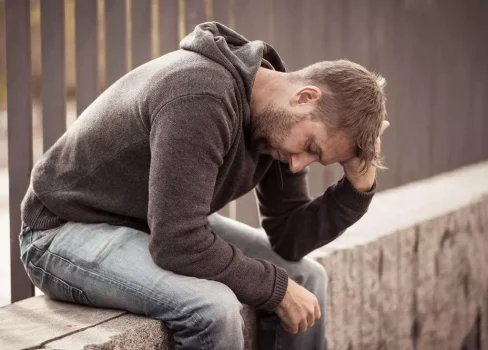
This belief is rooted in stigma and judgment and fails to recognize that addiction is a disease, not a character flaw. This myth is especially destructive as it places an unnecessary burden on individuals in recovery, labeling them as failures if they experience a relapse. This belief can foster feelings of guilt, shame, and disappointment, which can create additional emotional obstacles on the journey to recovery. There is a misconception that there is only one way to treat addiction, and what works for one person will work for everyone. This can be harmful as it may discourage individuals from seeking treatment if they don’t believe in the prescribed approach.

#4. People who get addicted to prescription drugs are different from people who get addicted to illegal drugs.
By showing this, we can show kindness and understanding to those with addiction. Recovery needs understanding and support from individuals with addiction and their communities. Tailoring treatment to individual requirements increases the likelihood of long-term sobriety. Treatment must be affordable to provide support for those looking for recovery.
Myth 9: Treatment isn’t necessary and people should just quit “cold turkey”
The reality is that many individuals struggling with addiction are high-functioning and manage to maintain careers, relationships, and responsibilities despite their addiction. However, it’s crucial to recognize that addiction can still have a significant impact on an individual’s well-being, work performance, and interpersonal relationships. In many cases, the strain of managing addiction while maintaining the appearance of normalcy can exacerbate the problem and delay the decision to seek help.
- Psychological factors, including underlying mental health disorders such as depression, anxiety, or unresolved trauma, can contribute to the vulnerability to addiction.
- The U.S. has experienced a devastating rise in drug overdose deaths in recent years.
- There is always hope for recovery and no one is defined by their struggles with addiction.
- A recognized leader in addiction medicine, Gateway Foundation’s programs are based on medical and psychological research but tailored to meet each patient’s unique needs and challenges.
- It affects people of any age, income, ethnicity, religion, family, or profession.
- Otherwise, you risk facing increasingly painful consequences as alcohol steals more and more of your life away from you.
Shame and its Impact on Seeking Help and Discussing the Impact of Addiction
Opioiduse disorder (OUD) is a chronic brain disease caused by the effects ofprolonged opioid use on brain structure and function. These brainchanges — and the resulting addiction — can be treated with life-savingmedications, but those medications are not available to most of thepeople who need them. Health care providers at Johns Hopkins Medicine can offer hope to patients living with substance use disorder and their loved ones. We hope that you will join us in our campaign to reduce stigma and help ensure that all patients feel welcome and cared for in our health system.
Myth 8: Seeking Help Is A Weakness
Creating a safe space for open conversations helps reduce stigma. Addressing stigmas online and in discussions can also help spread accurate information. myths about addiction and recovery Yes, with proper treatment, prescription medications, and ongoing support, individuals can achieve long-term recovery from addiction.


For example, if you were attending a group addiction meeting only once a month after detox and experienced a relapse, then you should begin more intense outpatient therapy. By doing all this, we can break down myths and misconceptions and promote understanding, compassion, and support for addiction and recovery. https://ecosoberhouse.com/ In this era of social media having immense importance in influencing public opinion, addressing stigmas regarding addiction online is a must. We can use digital platforms to disprove myths, prevent the spread of false information, and foster constructive conversations about addiction as a disease.

This thinking can discourage individuals from seeking treatment or make them feel hopeless about their future. Today, thanks to science, our views and our responses to addiction and the broader spectrum of substance use disorders have changed dramatically. Groundbreaking discoveries about the brain have revolutionized our understanding of compulsive drug use, enabling us to respond effectively to the problem. Some people are skeptical about using a prescription drug to treat a physical dependence caused by a drug. However, these medications are considered an essential tool in reducing the chances of a patient causing harm to themselves or someone else during the withdrawal process.
Myth #3: Only certain types of people have substance abuse issues.
Stereotypes and misconceptions about addiction often lead people to believe that only certain types of individuals are susceptible to addiction. Unless and until we recognize and approach addiction in this light, we will never reverse its lethal hold on America and its most vulnerable citizens. I am board certified in psychiatry, addiction psychiatry, and addiction medicine. If you are looking for drug and alcohol detox, inpatient rehab, or ongoing support for your recovery, our addiction treatment center can offer you the help and guidance you need. If you tried treatment before but were not able to maintain sobriety, that doesn’t mean that treatment doesn’t work. It simply means you are experiencing what is typical of someone along the journey of addiction recovery.
Myth 6: Detoxification alone is sufficient for addiction recovery

Recovery, on the other hand, is a lifelong process that involves physical, psychological, and social changes. It requires a comprehensive approach that may include medical treatment, therapy, support groups, and lifestyle modifications. Each person’s recovery journey is unique, and it is important to recognize that success looks different for everyone. We should also raise awareness about the risks of prescription drugs. Misuse or overuse of a prescribed medication can lead to dependency or addiction.
- Some individuals may achieve significant progress in a relatively short time, while others may require longer periods to fully recover.
- Withdrawal symptoms can be incredibly uncomfortable, and in some cases, dangerous.
- However, the contrary is true—a person should seek treatment early on in the addiction.
- The journey to recovery typically involves multiple stages, including detoxification, rehabilitation, and maintenance.
- Addiction isn’t a choice, but a result of genetics, environment, and mental health.
Mastering sugar cravings after quitting alcohol: Uncover strategies, balanced diets, and self-care for a healthier you.
Theycan save lives, but the majority of people with OUD in the UnitedStates receive no treatment at all. Confronting the major barriers tothe use of medications to treat OUD is critical to addressing the opioidcrisis. Withholding or failing to have available all classes ofFDA-approved medications for the treatment of OUD in any care setting isdenying appropriate medical treatment. For opioid use disorder, FDA-approved medications — methadone, buprenorphine, and extended-release naltrexone — can cut the risk of overdose death in half. However, they are underused in part due to the stigma and misunderstanding about their role in treatment. Clinicians and other caregivers make a meaningful difference in their patients’ lives.

Leave a comment
Your email address will not be published. Required fields are marked *